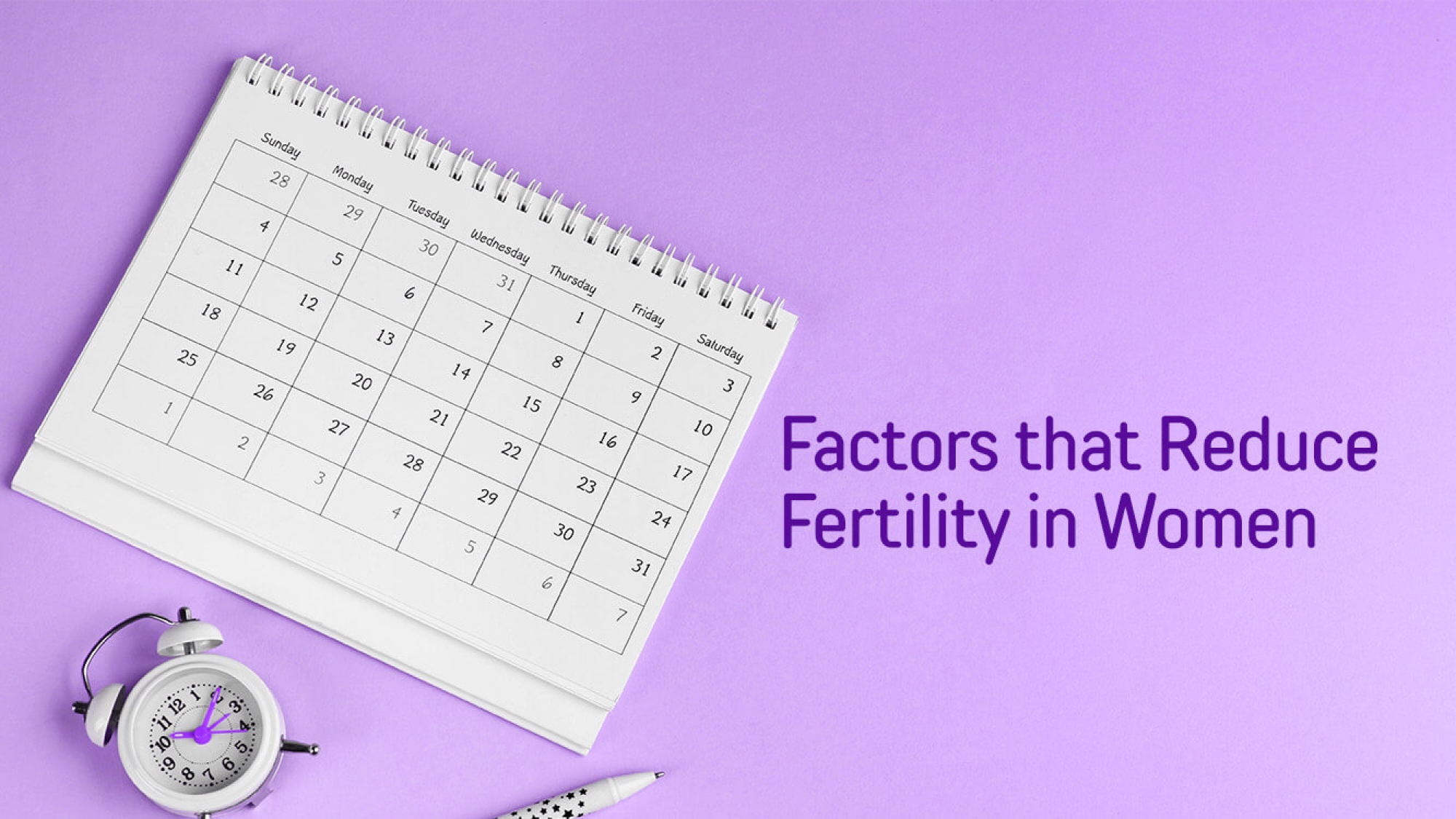You may or may not be planning to conceive right now – but there are some things that you must be aware of if you plan to start a family and become a mother in future. You need to know some factors that affect fertility in women so that you can prepare yourself now and conceive without any troubles.
Infertility in women is a rising concern that needs to be taken care of. If you try adopting ideal routines that do not reduce your fertility, the journey to motherhood becomes a little more effortless.
Are you trying to get pregnant for a long but unable to do so? Visit Banker IVF, the best IVF centre in Ahmedabad, led by the most renowned infertility specialist Dr Manish Banker.
Also read on red flags of infertility.
Factors that You Didn’t Know Can Affect Fertility in Women:
Increasing Age
We know that you have heard about age reducing fertility in women millions of times now! But age is the most integral aspect that can lead to infertility in women. The younger you are, the more fertile you will ever be. A woman takes birth with all the eggs she’ll ever have, and with age, the quantity and quality of eggs diminish. Moreover, fertility in women begins to notice a drop by 35. By the time you are 40, you have merely a 5% chance of conceiving per menstrual cycle. Although other factors reduce fertility in women, age is a considerable one.Overdoing or Not Doing Exercise
Setting a daily exercise routine is a challenge, but it is a must. Studies indicate that women who exercise daily have a fertility rate higher than women who do not exercise regularly. You should maintain a regular exercise schedule for better reproductive health. Regular exercising will boost your fertility, keep your eggs healthy and maintain an accurate menstrual cycle. Nevertheless, this does not imply that you should engage in strenuous physical activity. Going extremes is never a wise move when trying to get pregnant.Smoking and Drinking
As known by all, smoking and alcohol are harmful to your health, but you should know that these are also one of the main causes that reduce fertility in women. If you have conceived but still continue to drink, the risk of miscarriage is high. Excessive drinking causes ovulation problems, disrupts the menstrual flow, and interferes with uterus implantation. Smoking is equally or even more harmful to fertility. Prolonged drinking and smoking can be the cause of infertility. So, avoid doing so.Unhealthy Eating Habits
Someone has rightly said that you are what you eat – most people generally do not prefer healthy over junk food until they encounter unfavourable consequences. Unhealthy eating habits can lead to increasing BMI, and a higher BMI is not good for fertility in women. You should try eating healthy, especially when you are trying to get pregnant. Sticking to healthy and nutritious eating habits can reduce difficulty in conceiving and improve fertility in men and women.Genetics
Genes have a powerful influence on fertility and menopause, the same way it has on health. Your chances of getting early menopause are six times elevated if your mother or sister experienced early menopause. The best way to prepare for pregnancy is to know your family history early and manage your fertility health accordingly. Talk to your mother or sister about their experience with menopause and fertility. Since if your female relative had difficulty getting pregnant, you too are at risk!Stress
Stress is a part of our day-to-day life, and it is normal for everyone to take stress, but only to an extent. Stress can have an unfavourable impact on the health of your body, including your reproductive organs. So, if you are taking a lot of stress, then this is a sign that you learn to manage your stress and not let your body get affected by the same. Taking less stress will benefit your physical and mental well-being and lead to a positive impact on your fertility too.Disturbed Sleep Cycle
You need to sleep for a good number of hours to stay fresh, attentive and, more importantly, healthy. Sleep deprivation contributes to health issues such as blood pressure, heart ailments, diabetes, and more. A poor sleep cycle can cause hormonal imbalance, increase stress and affect fertility in women. If you plan to get pregnant sooner or later, make sure that you sleep appropriately, take proper rest and remain fresh. Giving yourself good sleep has to be the most comfortable you can do to prevent infertility in women.Hormonal Changes
Hormones play an extremely significant part in the process of conceiving and taking pregnancy to the full term. A slim shift in your hormones can completely transform the trail in which your body operates. Many hormones are involved in the process of ovulation and conception, including GnRH, LH, FSH, oestrogen, and progesterone, and each of these must be present at the right time and in the right amount to ensure that the process goes fine.Gynaecological Problems
Infertility can also be a result of reproductive organ damage caused by injury or disease. Some reproductive issues such as pelvic inflammatory disease or endometriosis are examples of diseases that can affect fertility in women. Moreover, some women have congenital structural abnormalities, such as a deformed uterus or fallopian tube defects, which can prevent pregnancy. Abnormalities like this are usually present from birth and may not cause any other symptoms, so a woman may not be aware of the same.Infertility in women is a rising concern that needs to be taken care of. If you try adopting ideal routines that do not reduce your fertility, the journey to motherhood becomes a little more effortless.
Are you trying to get pregnant for a long but unable to do so? Visit Banker IVF, the best IVF centre in Ahmedabad, led by the most renowned infertility specialist Dr Manish Banker.
Also read on red flags of infertility.
